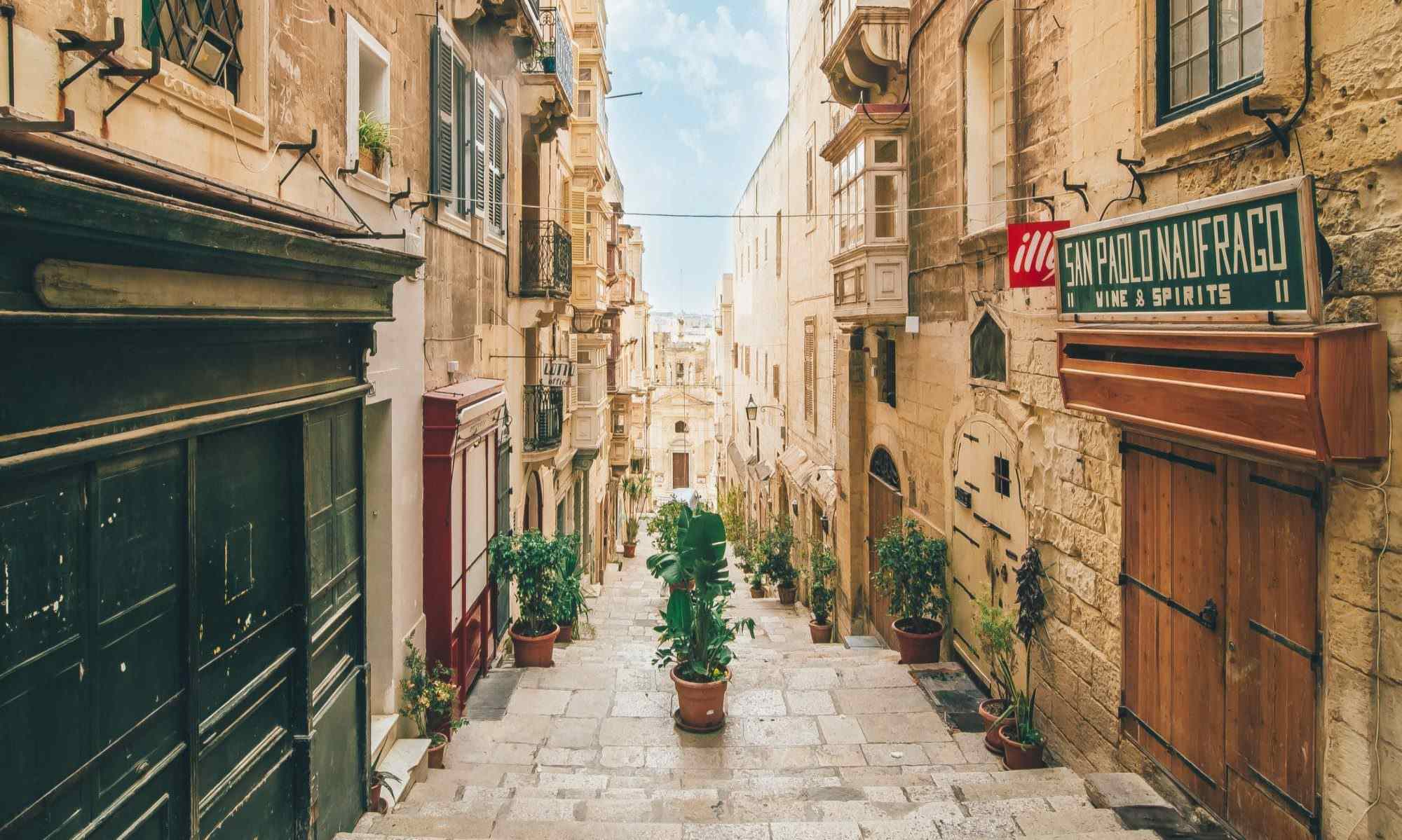The most famous historical trivia about Malta is that it spent several centuries as the home base for an itinerant order of crusader knights. The island country’s connection to the Order Saint John carries on today, at least in spirit and symbols.
Malta’s willingness to grant a home to those coming from abroad also endures into the 21st century.
These days there is a comprehensive system of residence permits. The golden visa for the very wealthy gets the headlines but there are similar programs for a broad spectrum of participants.
Below you’ll find a complete guide on to how to qualify for each of Malta’s residence permits and the benefits you’ll enjoy if you’re granted one.
Table of Contents
What Determines Which Residence Permit is Right for You?
Malta has a wide range of visas and residence permits that fit several different situations. There are a few variables to look at before you decide to apply. For instance:
- Are you from the EU? This is a major determiner for a few of the programs that are only open to those with an EU passport — and often also those from other EEA countries or Switzerland.
- Do you plan to work? And is your Maltese company sponsoring your application?
- Are you self employed? Or will you start your own business?
- Are you retired?
- Are you keen enough on living in Malta to make a major investment in a government fund?
How to Qualify for Malta’s Tax Residency Advantages
Malta decides who is a tax resident with a number of fact-based tests. They are:
- Is your primary place of abode in Malta?
- Were you physically present in Malta for more than 183 days in a calendar year? If not, were you in any other country 183 or more days?
- Were your visits to Malta frequent and regular?
- Have you declared an intention to be a resident of Malta?
- Were you born in Malta or do you have family that lives in Malta?
- Is your business in Malta?
Malta’s usually favorable tax system is even better if you are participating in one of the residency schemes that promise a flat tax rate instead of the escalating tax rate under Malta’s system of tax brackets.
If you’re not certain about your tax residency status, it’s best to seek advice from a tax advisor.
Please be aware: the government now mandates that any application for residence must be submitted by an Authorised Registered Mandatory.
Our residency and tax specialist can handle this for you and can also answer all of your specific tax and residency questions.
The Main Option: Malta’s Residence Programme
This is the main stream of entry for expats resettling in Malta. Except in very rare cases, it is only open to EU/EEA/Swiss nationals. (See below for the third-country option, Malta’s Global Residence Programme.)
To qualify, you must:
- Declare that you are fluent in English or Maltese.
- Pay a one-time €6,000 registration fee. (Or €5,500 if you buy or rent a property in the south of Malta or on Gozo.)
- Have a clean criminal record.
- Prove that you are self-sufficient financially.
- Buy a home worth €275,000 or €220,000 if it’s in the south or on Gozo.
- Or rent a home for €9,600 (€8,750 on Gozo or in the south) in annual rent.
- Not spend more than 183 days in any other jurisdiction.
On top of Malta’s always enjoyable lifestyle, tax advantages are the most attractive feature of this program.
You, your spouse and dependents pay a flat 15% on income sourced in Malta, as well as money (excluding capital gains) remitted to Malta. There is a minimum €5,000 tax liability per year.
Note that you are not required to spend 183 days in Malta. For this, and other programs with the same requirement, many participants will spend three months in Malta and then travel for the rest of the year but will spread that travel out so that they aren’t in another country for 183 days.
Malta’s Global Residence Programme
Effectively, this is the same program but for those who are not EU, EEA or Swiss nationals.
Take note that:
- It has the same rules for buying or renting a property as the Residence Programme.
- There are no requirements for a minimum presence in Malta per year, but holders must visit at least once a year.
- Income generated in Malta is taxed based on Malta’s usual tax rates.
- Funds remitted to Malta are taxable at a flat 15% and there is a minimum annual tax bill of €15,000 on this income.
Qualify for Malta’s Residence Based on Employment Status
When the realization dawned on the Maltese government that tourism would not be enough to keep the country’s economy afloat in the 21st century, they looked around for other options.
As an island, it’s costly to get the equipment and inputs needed for any type of value-added manufacturing to Malta so the decision was made to focus on attracting talented employees and entrepreneurs.
In particular, the Maltese government set out with a focus on the financial services and online gaming sectors. In 2012, they added aviation (with a focus on operations rather than manufacturing) to the list.
The baseline requirements are:
- Have a job title on the list which ranges from Senior Trader to Chief Technology Officer.
- Earn the minimum salary. In 2019, it is €84,991.
- Proof of qualifications and professional experience for the job.
- Health insurance for the employed person and their family.
The main benefit of this residence status is tax savings. Maltese income and funds remitted to Malta (except for capital gains, which are tax free) are taxed at a flat 15%. There is no minimum tax payable and all income above €5,000,000 is tax exempt.
The program is open to anyone. Those who have a passport from an EU/EEA country or Switzerland may only participate for five years. All others max out at four years.
Residence for Retirees to Malta
The Malta Retirement Programme (MRP) offers residence status in Malta to EU/EEA/Swiss nationals who get a large majority of their income from a pension.
Basic requirements:
- Be at least 18 years old.
- Have pension income make up at 75% of your annual chargeable income.
- Don’t spend more than 183 days in any other jurisdiction.
- There are special rules to navigate if you plan to bring dependents or a special carer to reside with you in Malta.
Under this scheme, retirees pay 15% on foreign income remitted to Malta. The minimum amount payable is €7,500 per annum plus €500 per dependent.
The Maltese government charges a one-time €2,500 fee to register.
This program is very popular with British retirees. Obviously, they will be closely watching the outcome of the Brexit process in case it affects their eligibility.
Malta Residence Permit for a Self-Sufficient Person
This residence permit is similar to the one for retirees in Malta. The difference is that you don’t have to prove that a majority of your income comes from a pension.
So, it’s often used by digital nomads, entrepreneurs and retirees who are not living off a pension.
Its requirements for EU/EEA/Swiss nationals are:
- A bank balance of €14,000 for individuals — or €23,000 for couples.
- Or a demonstrated regular income of €92.32 per week — €108.63 for couples and an additional €8.15 for each dependent child.
- Have a private health insurance plan that covers you and dependents throughout all of the European Union.
- Have already lived in Malta for two months before applying.
The self-sufficient resident permit is open to non-EU/EEA/Swiss nationals but the capital threshold rises to at €50,000. Approval is at the discretion of government officials who have shown an inclination to prefer that wealthy individuals apply under the investment visa, which requires a significant investment.
Holders of this residence permit are eligible for the remittance based tax system at 15%. Starting in 2018, the Maltese government instituted a minimum liability of €5,000 per year.
Malta’s Residence and Visa Programme
Also known as the visa-by-investment program or the golden visa, this residence status is open to non-EU nationals.
Briefly, the program requires an investment in government bonds, a contribution to the Maltese development and buying or renting a property of a certain value in Malta.
See this guide to Malta’s investment visa for more details.
Eventually Getting Permanent Residence in Malta
All these programs, unless otherwise, can be used to help an applicant qualify for permanent or long-term residence in Malta.
These residence schemes are discussed in more detail here.
What You Need to Know About Malta’s Residence Schemes
Malta has a diverse range of residence programs, which are open to different people depending on means, nationality, and other factors. A quick guide to tell them apart:
- Residence Programme – Open to EU/EEA/Swiss nationals, real estate requirements.
- Global Residence Programme – For those not from the EU/EEA/Switzerland, same real estate requirements.
- Highly-Qualified Individuals Residence – open to those in certain industries with high-level job titles and a minimum salary.
- Retirees in Malta Residence – Have 75% of your income derived from a pension.
- Economically Self-Sufficient Residence – For those who have (and can demonstrate) a certain level of passive income that comes from outside Malta.
- Malta Residence and Visa Programme – also known as a “golden visa”, requires significant investments in Maltese funds.
Choosing and applying for a residence permit in Malta is an important step in your life and the details are essential. Get in touch and I’ll be happy to guide you through the process.


